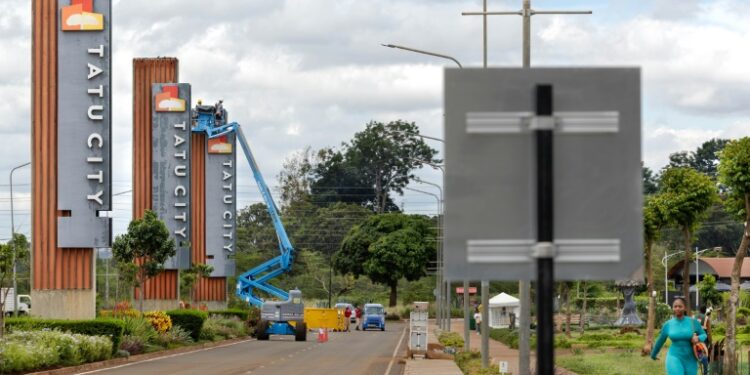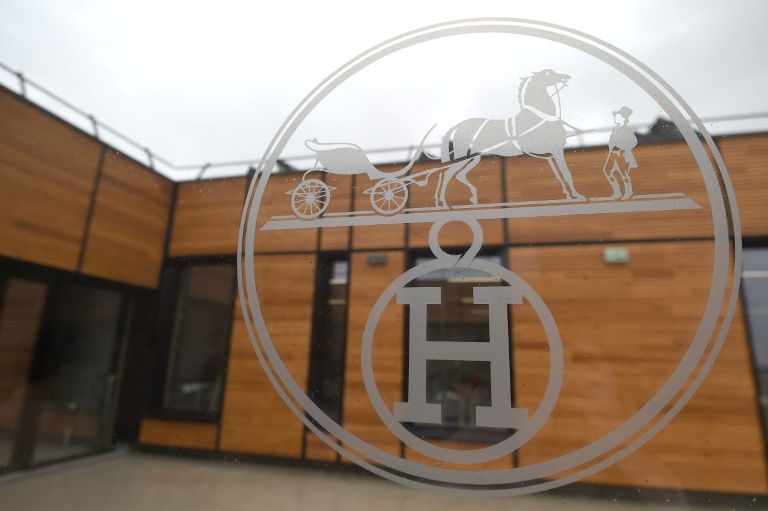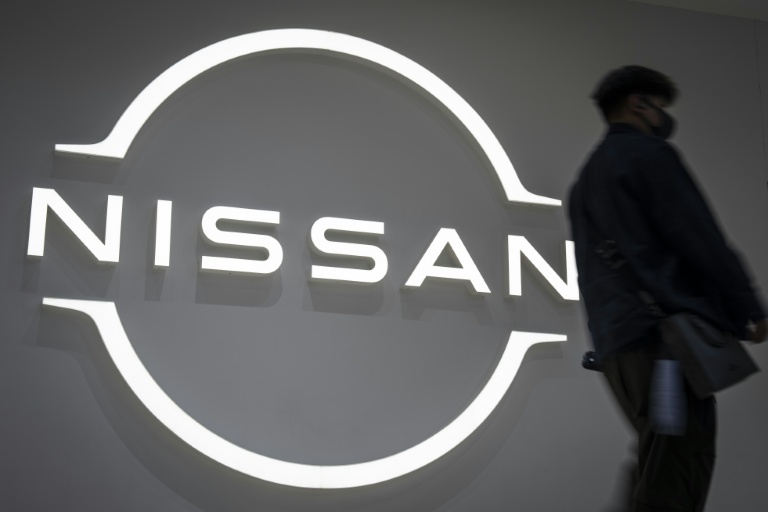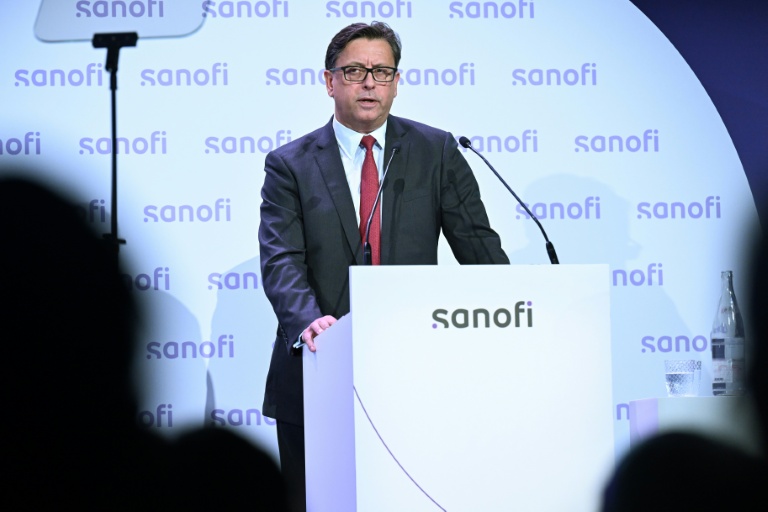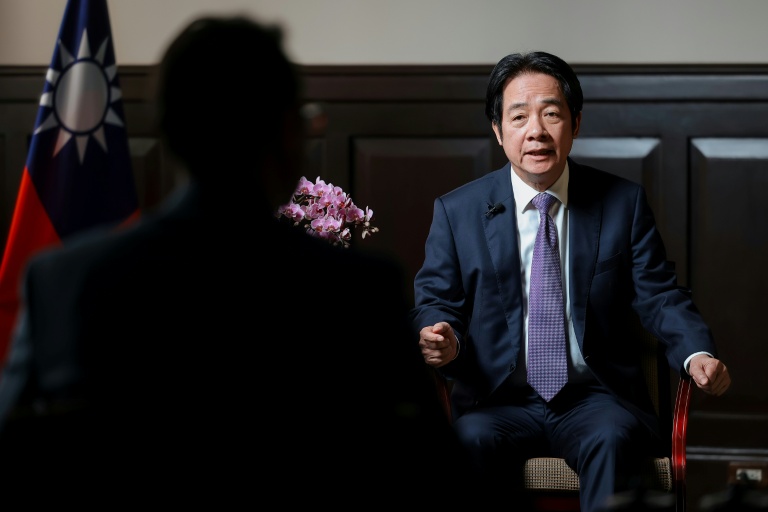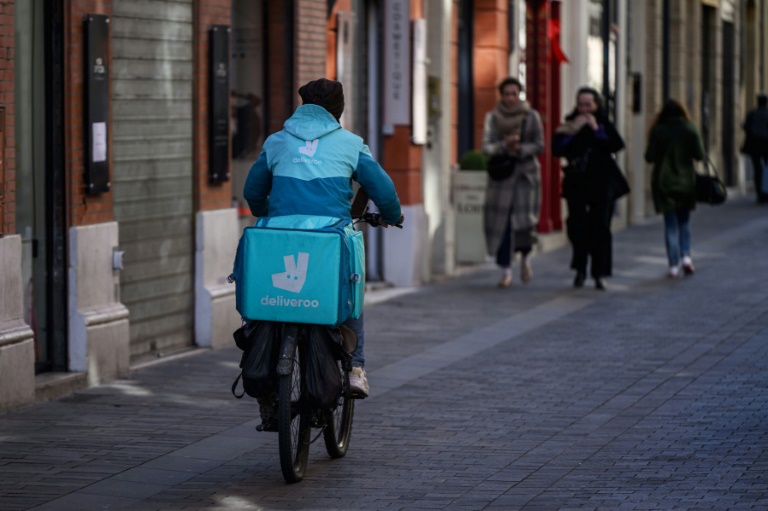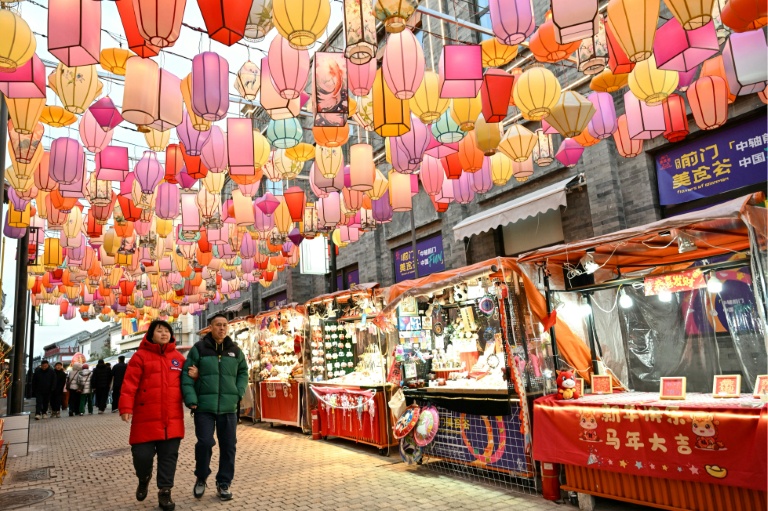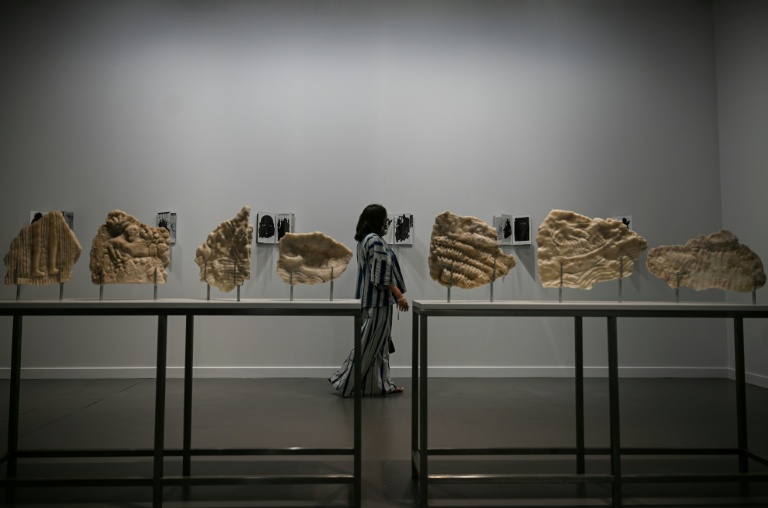Nairobi (AFP) – To many, Tatu City on the outskirts of Nairobi looks like a success. The first city entirely built by a private company to be operational in East Africa, with some 25,000 people living and working there, it accounts for around two-thirds of all foreign investment in Kenya. Its low-tax status has attracted more than 100 businesses including Heineken, coffee brand Dormans, and the biggest call-centre and cold-chain transport firms in the region.
But to some local politicians, Tatu City has looked more like a target for extortion. A parade of governors have, according to the city’s owners, demanded land worth millions of dollars in exchange for building permits. A few years ago, a governor “drove around with us, just pointing at different plots of land, saying ‘I want that, I want that,'” said Preston Mendenhall, Kenya country head for Rendeavour, the company building the city. The American responded with a tactic rarely attempted in Kenya: going public. More than once, Mendenhall has held press conferences detailing the alleged extortion attempts of local politicians.
“They thought that we, as foreign investors, would leave the country,” he said. “(But) we’re looking at a 50-year time horizon. For us to challenge somebody, if need be in public, who is trying to extort us…we believe that’s the right thing to do.” Last year, he publicly accused local governor Kimani Wamatangi of demanding 54 acres (22 hectares) of Tatu City, worth $33 million, free of charge. Wamatangi — who did not respond to an AFP request for comment — denied the accusation. It’s a risky strategy. “I’m subject to four defamation cases. It’s their intimidation tactic and they’re used to getting what they want,” said Mendenhall. “But the first case goes back to 2015 and we haven’t had a hearing yet so I’m not too worried.” The waiting game appears to be paying off. The first governor who targeted them, Ferdinand Waititu, is now in prison from a separate corruption case. Wamatangi was arrested last month by anti-corruption officers who found some $13,000 in cash in his home, also in an unrelated case.
– ‘World-class facilities’ – Meanwhile, Tatu City is slowly but steadily growing. The resident population is still small, but the 5,000-acre site already includes a supermarket, health clinic and two schools with 5,000 pupils. There are 2,400 homes ranging from studios to lakeside mansions and 2,000 more on the way. Many are attracted by the fact it has its own electricity and water supply to prevent cuts that are highly common across Africa. “That is why we chose Tatu City,” said Hannington Opot, commercial director of Hewa Tele, which is currently building a factory to produce medical-grade oxygen for hospitals — a chemical process requiring uninterrupted power and water. Cold Solutions, which provides storage for food and pharmaceutical partners, also highlighted the infrastructure. “We wanted to put a stake in the ground and say that Africans can build world-class facilities…and it marries nicely with what Tatu is trying to do,” said managing director Fredd Kambo. Unity Homes has built over 1,500 apartments. Buyers are attracted by the “playgrounds, parks, the fact they can drink the water from the tap…and knowing no one will build two centimetres in front of your balcony,” said commercial director Mina Stiernblad.
– ‘The hardest’ – Tatu City is the most advanced of six cities Rendeavour is building across Africa — in the Democratic Republic of Congo, Ghana, Nigeria, Uganda, and Zambia. Kenyan corruption has made it “by far the hardest,” said Mendenhall. Anger over corruption was one of the key drivers of mass protests in Kenya last year. But Rendeavour’s founders made their fortunes in the free-for-all of 1990s Russia and are unfazed. The owners have faced their own allegations, including claims of tax evasion. But investigations have been ongoing for years without resulting in any charges. Mendenhall says they are just more extortion attempts by “bad actors.” He emphasised that many in the Kenyan government are “incredibly supportive.” “They understand the vision of this project, understand the number of jobs that it’s created,” he said. And for all the corruption attempts, Mendenhall has great faith in Kenya. “Kenya is really an economic hub of the region (and) we think Nairobi will become the capital of Africa,” he said.
© 2024 AFP

